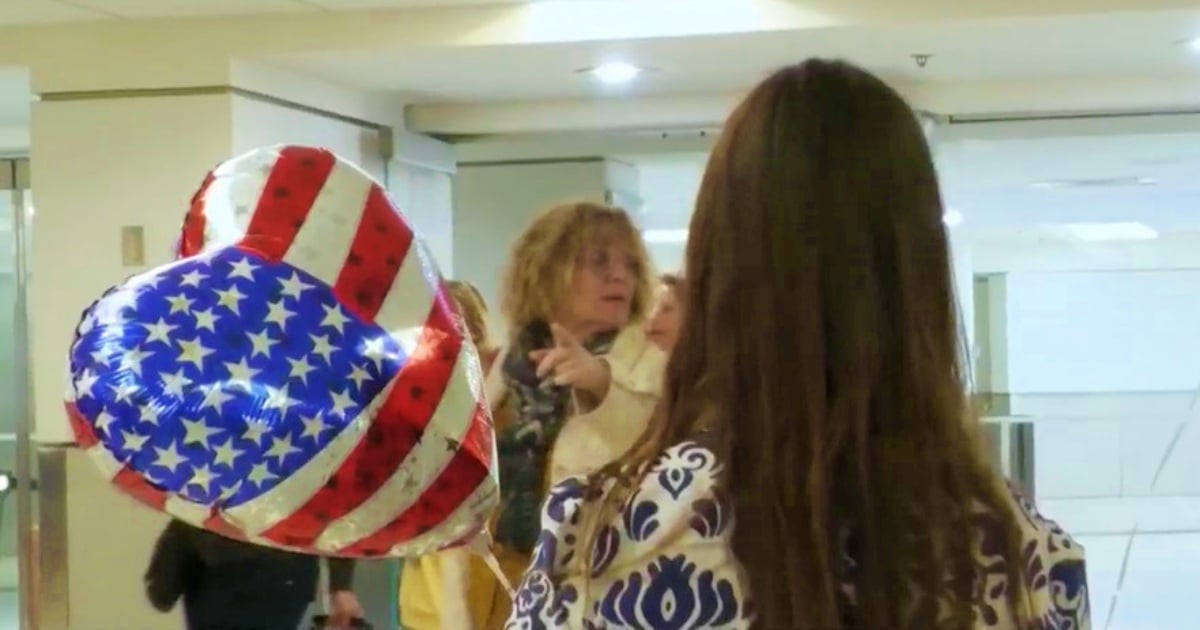Several reasons behind the temporary suspension of the United States' humanitarian parole program were unveiled in an internal report by the Directorate of Fraud Detection and National Security of the U.S. Citizenship and Immigration Services (USCIS). The document, which exposes significant levels of fraud in applications to this program under the Biden administration, indicates that it has been suspended for Cubans, Haitians, and Nicaraguans since July 18, 2024, and for Venezuelans since July 6, 2024.
A spokesperson from the Department of Homeland Security (DHS) told Fox News on Friday that "as a precaution," they have halted the issuance of advance travel authorizations for the program while they conduct a thorough review of sponsor applications, which are the primary focus of the fraud investigation. The probe found false information in thousands of I-134A application forms, with consistent repetition of social security numbers, addresses, and phone numbers, without verifying the information provided by the sponsors, according to the blog Café Fuerte.
As of April 17, 2024, the USCIS review had tallied 2,622,076 applications. Of these, nearly 529,000 applications were "confirmed" (approved), and around 118,000 were "not confirmed" (denied). Investigators noted that at least 100 IP addresses represented 51,133 of the I-134A form submissions, implying multiple uses of the same IP address. For instance, one IP address in Tijuana, Mexico, was used 1,328 times. On average, each IP address associated with these programs submitted 2.2 application forms.
Another critical point was the Social Security Numbers (SSN) of sponsors, with findings that a total of 100,948 forms were submitted by 3,218 different serial sponsors. It was highlighted that applicants used the SSNs of deceased individuals, with statistics showing that "24 of the 1,000 most-used Social Security Numbers belonged to deceased people."
Additionally, some sponsors did not provide their income information despite it being a mandatory requirement, and among those who did, many did not meet the necessary threshold to support the person on parole. Phone numbers and email addresses were also scrutinized. In one case, a sponsor's phone number appeared in over 2,000 forms submitted by 200 different sponsors. Furthermore, a parolee's phone number was listed in 626 different forms and was associated with 238 different beneficiaries' surnames and 142 different beneficiary addresses.
Email addresses showed similar patterns of repetition. One sponsor's email address appeared in 363 different forms, while a parolee's most frequently used email address appeared in 1,723 forms submitted by 477 different sponsors.
The responses on the forms were also checked and found to be repeatedly identical. In one instance, the same answer was used 4,978 times, while slight variations of the answer (using "she" instead of "he") appeared 2,837 times, and another variation (using "he") was used 2,557 times.
Suspicious changes in USCIS online service accounts were discovered, with some sponsors altering the names or parole applicants, which the report describes as "concerning." Both sponsors and applicants provided fictitious information for postal codes, phone numbers, A-files [alien files], and Social Security Numbers.
"In total, there are 2,839 forms with non-existent postal codes. A quick review found obvious errors in the applications, as well as potential fraud and eligibility issues that warrant closer scrutiny," the report details. Similar issues were found with phone numbers, where verification sought to "determine if sponsors were providing real phone numbers." The conclusion was that sponsors submitted 1,908 applications using 3,264 phone numbers, including mobile and other daytime numbers, that appeared fictitious (not found in official databases). Some numbers were not standardized U.S. numbers; they had eleven digits and were used more than once.
The investigation also found that many A-file numbers (a unique number assigned to each immigrant's file) used in applications were fake. A total of 1,085 A-file numbers submitted in applications were never issued by USCIS. These 1,085 A-file numbers appeared in 4,590 forms. One fake A-file number was used in 353 different forms.
The report further emphasizes the use of fraudulent Social Security Numbers (SSNs), showing a concerning trend, especially because similar SSNs (like "111111111" or "123456789" or "666666666") were used, indicating that the data provided to the government was misleading.
The government report reviews the high number of applications submitted by minors or for gender reasons, noting that some IP addresses had 86% of women compared to men applying for parole. This suggests that a single internet user was filling out numerous forms, many of which were for women under 18.
The report also reveals repeated use of certain physical addresses. It was found that 100 addresses were used between 124 and 739 times in individual forms, linked to 19,062 forms. These addresses corresponded to mobile home parks, warehouses, storage units, apartment complexes, and commercial properties. One mobile home park address was used in 739 forms, a warehouse in 596 forms, and a storage unit in 501 forms.
Key Insights into the Humanitarian Parole Program Fraud Investigation
For better understanding, here are some frequently asked questions and answers regarding the recent findings on the humanitarian parole program fraud uncovered by the USCIS investigation.
Why was the humanitarian parole program suspended?
The program was suspended due to significant levels of fraud detected in the application process, including false information provided by sponsors and repeated use of social security numbers, addresses, and phone numbers.
What kinds of fraudulent activities were found in the applications?
Fraudulent activities included the use of deceased individuals' social security numbers, fictitious postal codes, and repeated phone numbers and email addresses. Many forms contained identical responses and suspicious changes in USCIS online service accounts.
How many applications were affected by the fraud investigation?
As of April 17, 2024, the USCIS had reviewed 2,622,076 applications, with nearly 529,000 confirmed and around 118,000 denied. The investigation found fraudulent use in thousands of these applications.
What impact did the fraudulent activities have on the parole program?
The fraudulent activities led to a temporary suspension of the program while a thorough review is conducted. This has affected the approval process for many applicants, particularly those from Cuba, Haiti, Nicaragua, and Venezuela.
